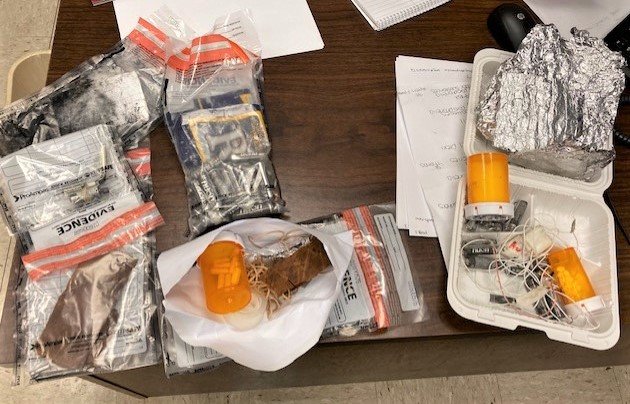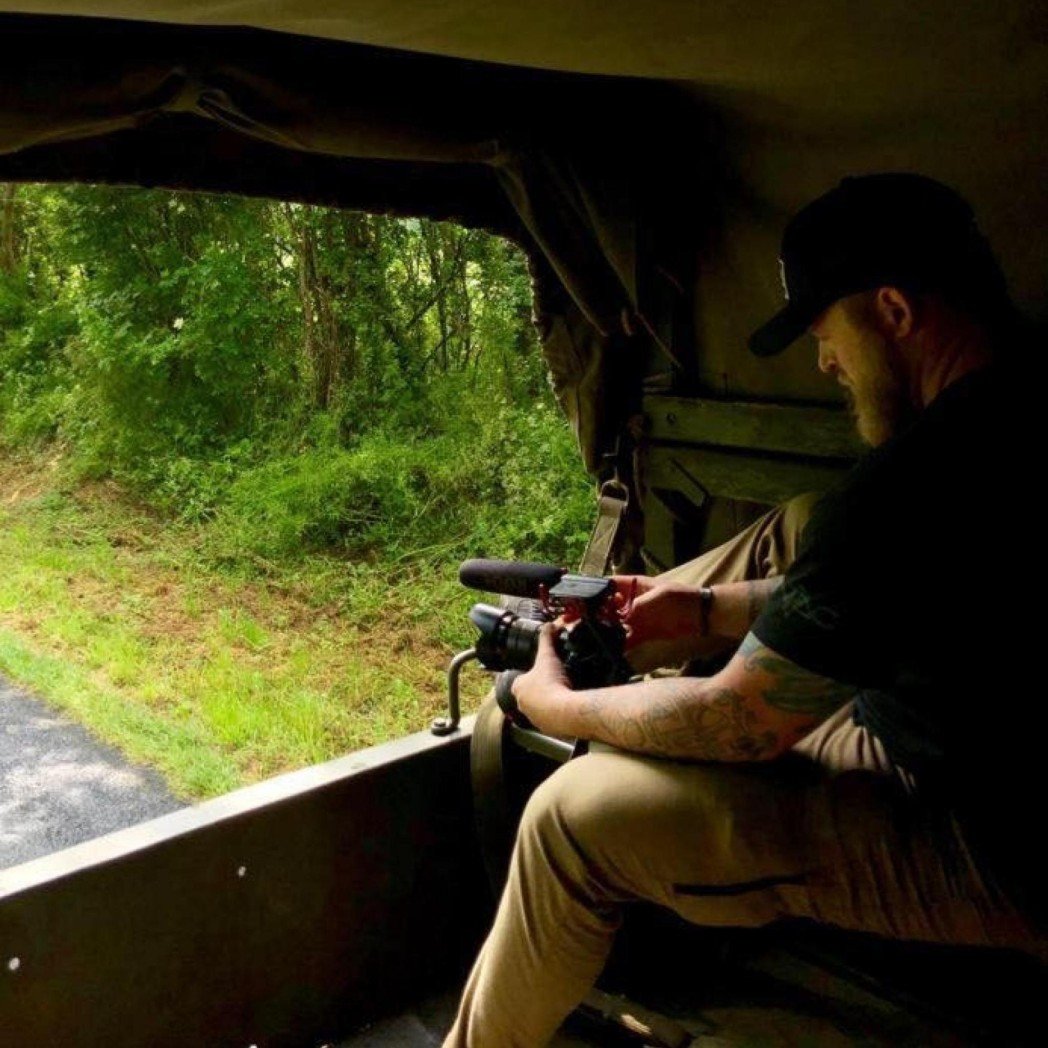Crackdown on Corruption Nets 3 Correctional Officers, 1 Nurse at Leavenworth

Like other prisons nationwide, the US Penitentiary Leavenworth in Kansas has struggled to hire and retain correctional officers and other staffers. They guard many prisoners transferred there after a crackdown on corruption at the nearby Leavenworth Detention Center. Federal Bureau of Prisons photo.
A crackdown on corruption at Leavenworth Detention Center in Kansas has netted sentences for three guards and a nurse.
Before they were caught and fired, prison guards Janna Grier, 36, Jacqueline Sifuentes, 26, and Cheyonte Harris, 29, plus nurse Jeane Arnette, 61, took bribes to smuggle contraband into the Kansas penitentiary, including cell phones, tobacco, lighters, and sometimes narcotics, often getting paid by prisoners using Cash App, a money transfer program.
Nicknamed “Wonder Woman” by her family, Sifuentes is going behind bars for 14 months. Grier will spend two years in a penitentiary. Honorably discharged from the Kansas Army National Guard, Harris received a 20-month prison sentence. Arnette drew a six-month punishment.
Their criminal defense attorneys did not return Coffee or Die Magazine messages seeking comment.

The sentences also shine a light on problems that plagued the troubled Leavenworth Detention Center, which was run by a private company, CoreCivic, and located roughly seven miles south of the military’s infamous US Disciplinary Barracks inside the US Army’s Fort Leavenworth.
In a sentencing memorandum penned by Eric Vernon, the attorney for Sifuentes, the facility was portrayed as reeling from staffing woes, its correctional officers often saddled with poor training.
Sifuentes was recruited out of Texas to shore up the chronic staffing shortfall, Vernon wrote, given only a day’s training on how to subdue violent inmates, and then turned out to guard the convicts. She had been promised a job monitoring surveillance cameras, without any direct contact with the prison population, Vernon added.
In exchange for $800 in bribes in 2020, Sifuentes smuggled into the prison four packages stuffed with methamphetamine, tobacco, and marijuana, all wrapped in duct tape and left in a staff restroom for an inmate to retrieve.

Gary Stone, the attorney for Harris, wrote in his memorandum that contraband, including K2 — a synthetic cannabinoid also called “spice” — flowed through the prison unfettered.
“Inmates were in possession of prohibited items and sold and traded things as currency on an open market,” Stone wrote. “Her supervisors ignored the conduct and most of the time, writing a report or taking action was highly unusual.”
Stone wrote that one inmate became “kind of a friend” — Harris denied an intimate relationship — who spoke with her more than 100 times on the jail phone. The prisoner paid her roughly $8,565 to smuggle into the prison tobacco and the weight loss supplement Hydroxycut, although she initially denied that when interrogated by the FBI.
Arnette, the nurse, worked 13 months at Leavenworth between 2020 and 2021, receiving and sending out payments prisoners used to transact business inside the penitentiary. She also smuggled into the facility tobacco, cell phones, uninspected mail, and food.

Grier admitted to authorities that she smuggled tobacco and lighters into the prison, but she didn’t realize the contraband tucked into her bra included synthetic marijuana. Caught in the act of bringing in contraband in August of 2020, she was fired but persisted in trying to smuggle smokes and cell phones into the facility by recruiting unnamed staffers to do the dirty work. One of them was an FBI informant.
In his sentencing memorandum, Grier’s attorney, Thomas R. Telthorst, urged the judge to give her probation, not jail time. She didn’t have a criminal record before her arrest, he argued, and would no longer have access to the inmate who convinced her to smuggle contraband, so she wouldn’t be tempted to commit new crimes.
But prosecutors blamed Grier’s downfall on her own decisions to consistently violate her duty to keep inmates and staff at Leavenworth safe. They urged US District Judge Daniel D. Crabtree to put her behind bars for at least two years.
“Through her conduct, Grier willingly exposed the inmates and staff at Leavenworth, as well as the broader community, to the very dangers she was supposed to safeguard against, and she actively undermined the prison environment, which is crucial to our system of justice,” wrote Rebecca M. Schuman and Jacob R. Steiner, trial attorneys assigned to the Criminal Division of the US Department of Justice’s Public Integrity Section. “A meaningful term of incarceration is required to promote respect for our anti-corruption laws and to restore faith in our nation’s law enforcement institutions.”
The judge agreed with the prosecutors.
Editor’s note: This story was changed to reflect that the penitentiary was the privately-run Leavenworth Detention Center.
Read Next: Coyotes, Death Valley, and Vegas: Run Alongside This All-Female Relay Team of Deputy US Marshals

Joshua Skovlund is a former staff writer for Coffee or Die. He covered the 75th anniversary of D-Day in France, multinational military exercises in Germany, and civil unrest during the 2020 riots in Minneapolis. Born and raised in small-town South Dakota, he grew up playing football and soccer before serving as a forward observer in the US Army. After leaving the service, he worked as a personal trainer while earning his paramedic license. After five years as in paramedicine, he transitioned to a career in multimedia journalism. Joshua is married with two children.
BRCC and Bad Moon Print Press team up for an exclusive, limited-edition T-shirt design!
BRCC partners with Team Room Design for an exclusive T-shirt release!
Thirty Seconds Out has partnered with BRCC for an exclusive shirt design invoking the God of Winter.
Lucas O'Hara of Grizzly Forge has teamed up with BRCC for a badass, exclusive Shirt Club T-shirt design featuring his most popular knife and tiomahawk.
Coffee or Die sits down with one of the graphic designers behind Black Rifle Coffee's signature look and vibe.
Biden will award the Medal of Honor to a Vietnam War Army helicopter pilot who risked his life to save a reconnaissance team from almost certain death.
Ever wonder how much Jack Mandaville would f*ck sh*t up if he went back in time? The American Revolution didn't even see him coming.
A nearly 200-year-old West Point time capsule that at first appeared to yield little more than dust contains hidden treasure, the US Military Academy said.












